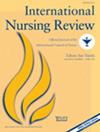Global Nursing Offices in Academia as a Strategy to Advance the United Nations Sustainable Development Goals: A Historical Case Study
Abstract
Aim
We present a historical case study of the Global Nursing Office (GNO) at the University of Alberta, Faculty of Nursing in Canada, documenting over five decades of global health leadership in nursing education, policy, and research.
Background
Academic institutions have a responsibility to contribute to achieving the United Nations (UN) sustainable development goals with the aim of achieving health for all. While there are examples of GNOs in universities worldwide, there remains limited documentation and analysis of how these academic structures operationalize internationalization mandates and influence advances in the nursing profession and global health.
Sources of Evidence
We completed a historical case study, using document analysis of archival records, institutional reports, and internal communications from 1970 to date, supplemented by oral history interviews with key stakeholders.
Discussion
The GNO's development reflects a transformative shift from individual-led initiatives in the 1970s to an academic structure with widespread faculty engagement and strategic global partnerships. Grounded in a philosophy of health equity, cultural humility, and mutual capacity-building, key milestones included the creation of the International Nursing Centre (1998), the Ghana Partnership (1999), and the Pan American Health Organization/World Health Organization Collaborating Centre (2002).
Implications for nursing and global health policy
Academic nursing leadership can look to existing GNO models for achieving sustainable and impactful outcomes that advance the profession and, most importantly, progress the UN sustainable development goals. We encourage nongovernmental and governmental bodies leading global health efforts to partner with GNOs who can tap into the expertise and services of faculty and students committed to global health advancement.

 求助内容:
求助内容: 应助结果提醒方式:
应助结果提醒方式:


